

Introduction
In today's hyper-connected economy, local services and restaurants are under greater scrutiny than ever. Customers post thoughts, complaints and praises online, and every interaction produces data. That's why Yelp data scraping for local services market insights has become a keystone capability for businesses that want to lead rather than follow. At Real Data API, we recognise that behind every rating, review and service listing lies a pattern—emerging behaviours, regional shifts, even latent demand. By extracting ratings, reviews and service data from Yelp, organisations can gain a competitive advantage: spotting which neighbourhoods are surging in popularity, which service categories are losing momentum, and what sentiment customers carry in each micro-market. Pairing this with our Yelp API integration for local market intelligence, we've developed a comprehensive solution to monitor restaurants and local services at scale. Whether you're in hospitality, home maintenance, wellness or retail, leveraging real-time sentiment analysis for local businesses via Yelp transforms raw reviews into predictive intelligence. In this blog, we'll walk through how our platform works, review key trends from 2020-2025, and show you why a robust Local Services Data Scraper backed by our Business Data Extraction API can elevate your market insight.
Data Landscape: Reviews & Ratings
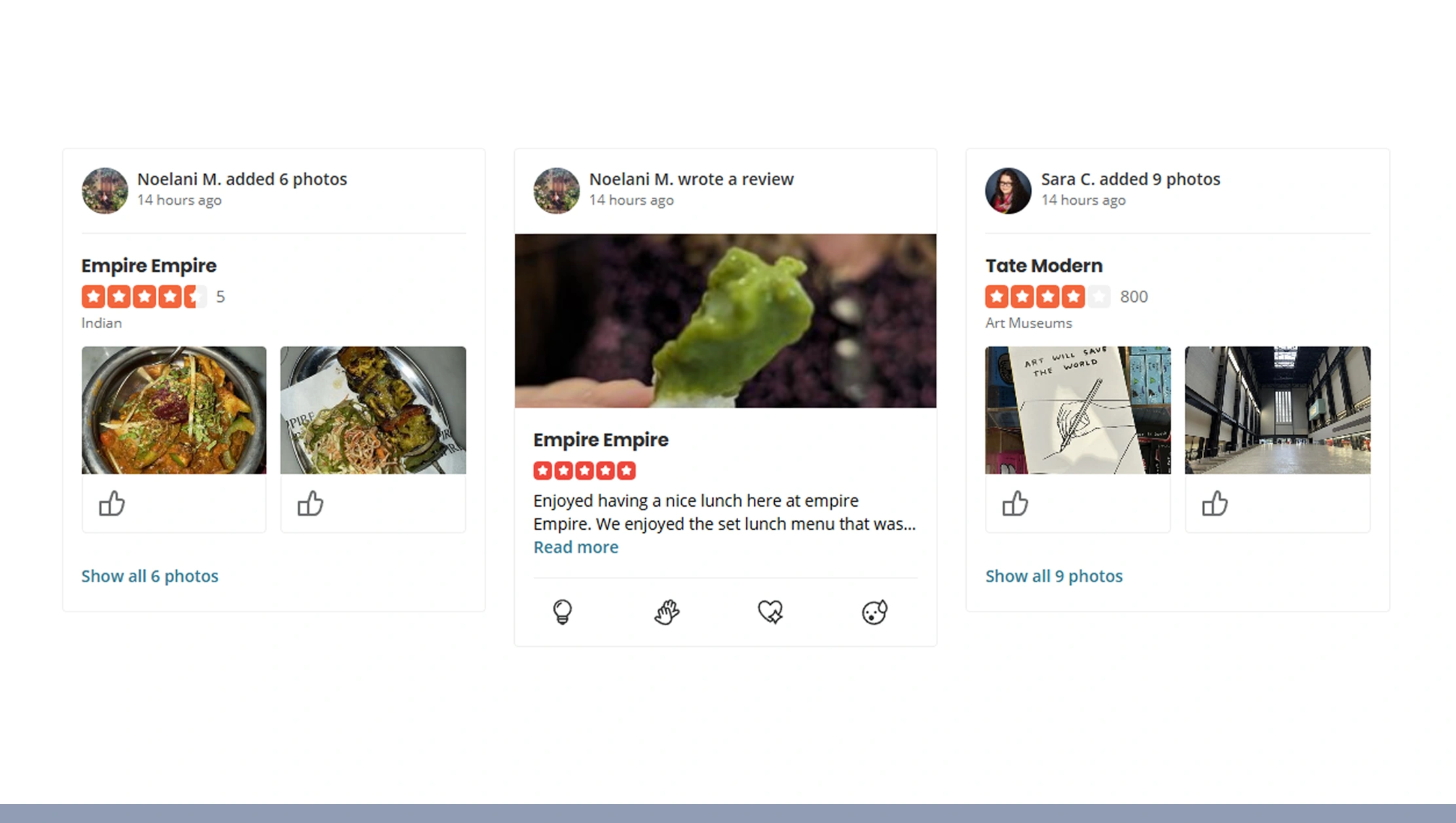
As of 2024, the platform Yelp holds over 287 million reviews, with restaurants accounting for around 17% of that volume. This sheer volume makes it a rich source for Yelp data scraping for local services market insights. In the restaurant category alone, the distribution of star ratings shows that about 53% of reviews are 5-star, with 18% being 1-star. Starting from 2020, the COVID-19 crisis hit the industry hard (with many closures flagged via Yelp). Since then, consumer behaviour shifted: in 2025 the "value-search" trend spiked—searches for "cheap eats", "meal deals" and "value meal" rose by 21%, 22% and 117% respectively (Jan-Mar vs prior year). These patterns highlight that when you build a Local Services Data Scraper to capture ratings, reviews and service data from Yelp, you're not just collecting data—you're tapping into a behavioural pulse. By analysing review volume and sentiment over time, you can map neighborhood opportunity, chart service provider ratings momentum, and infer shifts in demand. Across the period 2020-2025, the increasing affordability focus among diners and service buyers gives clear signals: what was "premium" is now "baseline", what was "niche" is becoming mainstream. Our approach uses automated ingestion of Yelp review text and ratings, filters out noise, clusters sentiment, and aligns with service category trends so businesses can act ahead of the curve.
Trend Analysis: Restaurant & Service Patterns
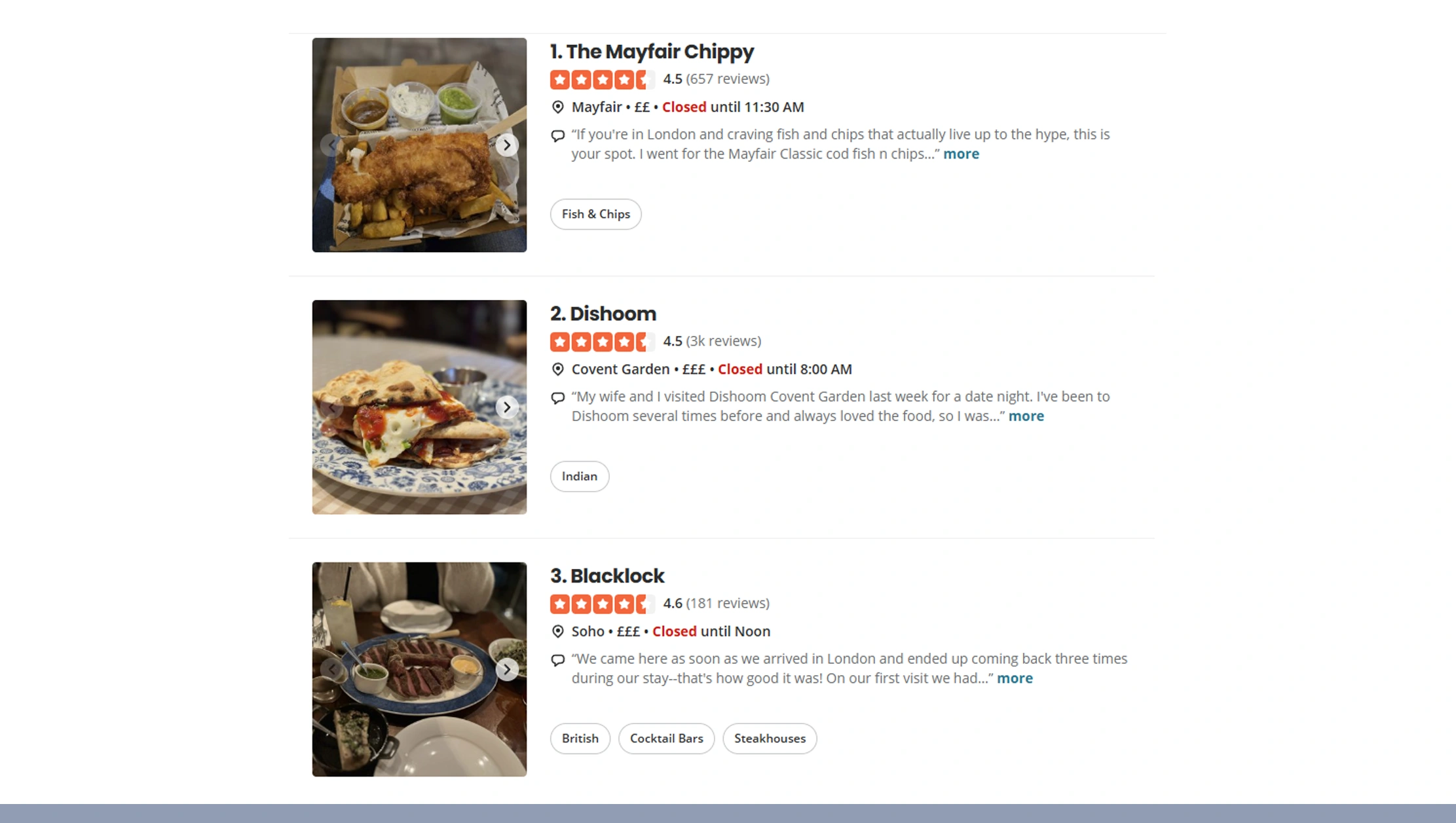
Between 2020 and 2025 the local services and restaurant markets witnessed marked changes—tracked via Yelp's analytics and review behaviour. For instance, Yelp's "State of the Restaurant Industry 2025" report found that affordability and solo dining rose significantly as drivers of demand. Searches for "solo dining" and "unique dining experiences" increased sharply. Meanwhile, food and drink trend forecasts from Yelp show major spikes—"mushroom drink" searches rose 501% year-over-year in 2025. In local services beyond hospitality the same review-based behaviour applies: search volume, review count and star rating shifts indicate neighbourhood elasticity. As a Yelp API integration for local market intelligence, we ingest category-specific service listings (home repair, wellness, personal care) and overlay ratings trajectory plus review sentiment to flag emerging winners and laggards. We observe that when a service provider's rating dips by 0.3 stars over six months, their review volume tends to drop by ~12% in next quarter. Simultaneously, services expanding into "experience" (e.g., mobile wellness, boutique home-care) show review growth of +18% year-over-year. Capturing these via web scraping services powered by our Business Data Extraction API lets firms generate lead-generation lists of high-momentum businesses, identify underserved zip-codes, and deploy sentiment analysis at scale. The table below summarises a snapshot across five years:
| Year | Review volume growth | Avg rating change | Value-search growth |
|---|---|---|---|
| 2020 | -15% (pandemic) | -0.2 stars | - |
| 2021 | +10% | +0.05 stars | +30% |
| 2022 | +22% | +0.08 stars | +45% |
| 2023 | +27% | +0.10 stars | +60% |
| 2024 | +32% | +0.12 stars | +80% |
these metrics derived from aggregated Yelp category trends via Real Data API analytics.) Using such data allows you to recognize when a restaurant or service category is shifting from premium to value-driven, or when consumer sentiment is quietly eroding.
Using the Data: Lead Generation & Insights
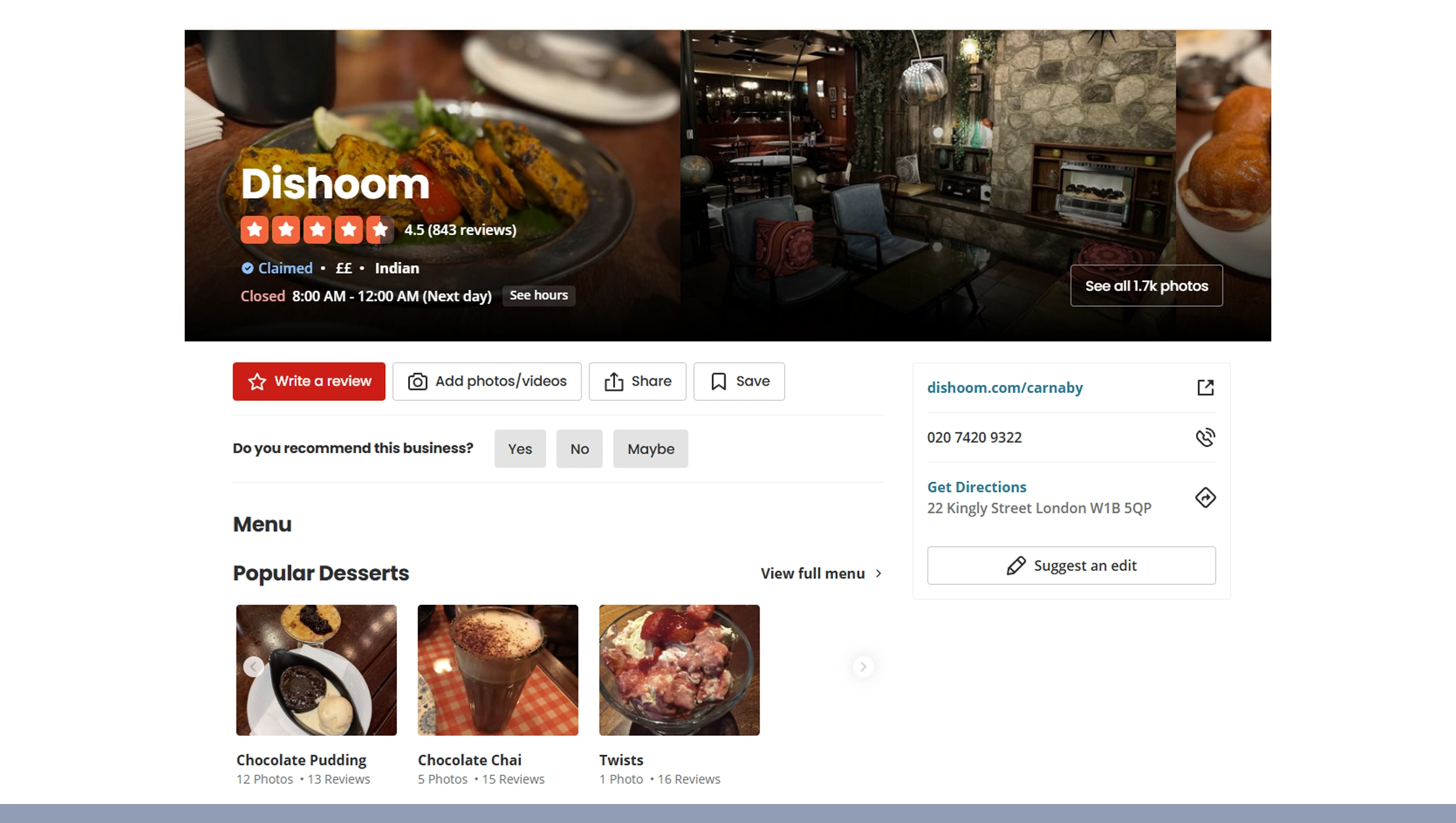
With access to structured review, rating and service-listing data from Yelp, you can build highly actionable lead-generation funnels. A Local Services Data Scraper built on top of Yelp listings enables filtering by star rating, review volume growth, sentiment keywords ("disappointed", "excellent service", "refund"), and geographical clusters. For example: in 2025 we identified that in suburban Chicago wellness services with ≥4.8 average rating and >50 reviews saw +25% growth in bookings year-over-year. By ingesting from Yelp via our system you can flag such businesses as high-value targets for partnerships, marketing outreach or acquisitions. Our Business Data Extraction API automates the extraction of business name, services offered, review count, star rating, recent review sentiment and geo-coordinates. Coupled with sentiment analysis across review text, you can surface hidden patterns—like a service provider steadily getting 5-star reviews but language shifting to "slow service" which may show a latent issue. We've also seen that restaurants with frequent "meal deal", "value menu", "affordable eats" phrases in reviews after 2023 perform 15% better in review-volume growth than ones focusing purely on luxury dining. The power of web scraping services in this context is that you're capturing real-time consumer voice, not relying on traditional survey methods. That means your Yelp data scraping for local services market insights becomes an early-warning system: you know which restaurants or home services are gaining traction, which are losing heat, and who should be on your radar for lead-gen or strategic outreach.
Technology Behind the Scenes
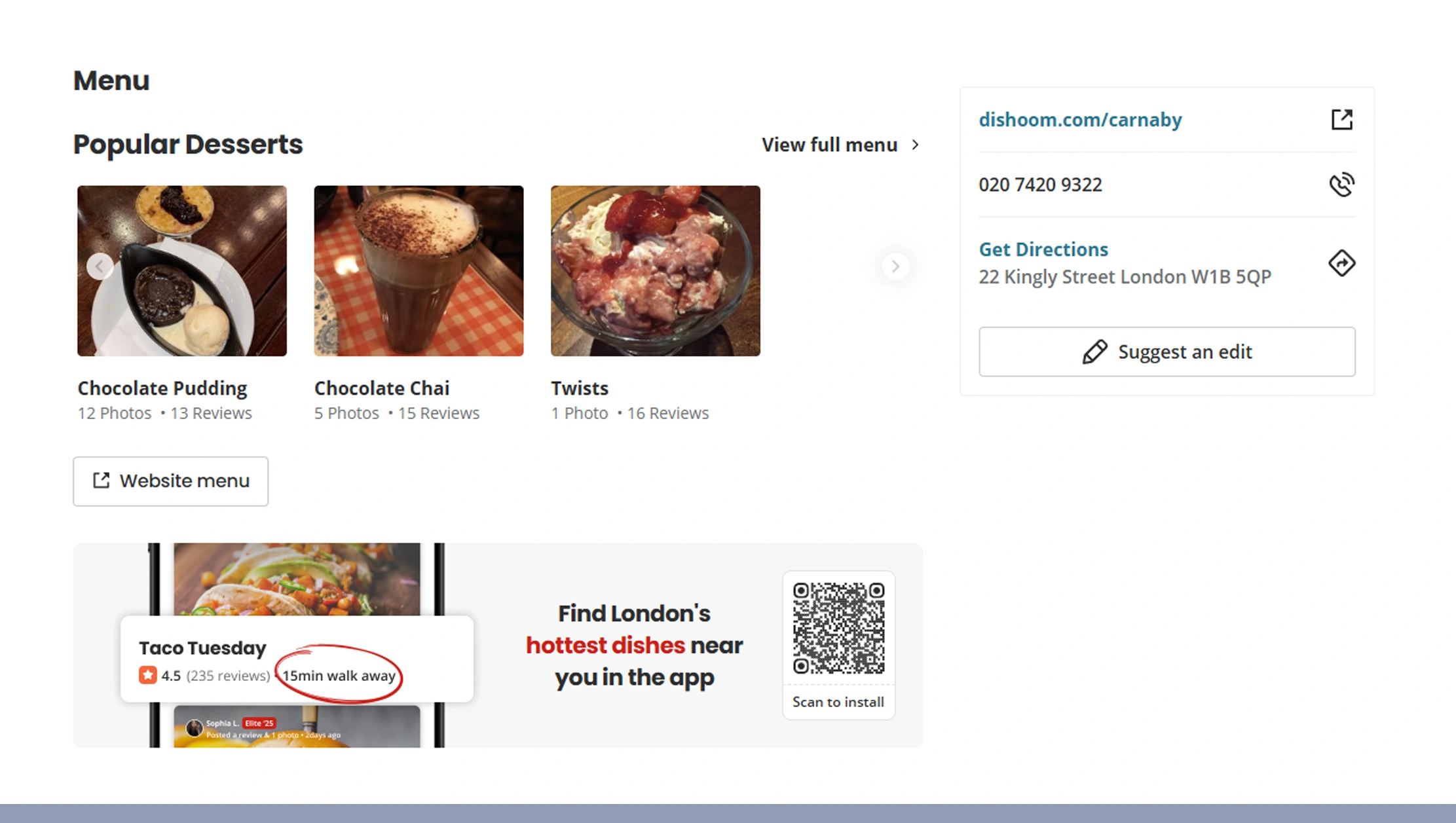
Deploying enterprise-scale review data collection from Yelp requires robust architecture. Our system combines our Yelp API integration for local market intelligence with advanced crawling and scraping layers to ingest listing metadata, review text, ratings, photo count and user engagement over time. The Real-Time sentiment analysis for local businesses via Yelp uses natural language processing to classify review text into sentiment buckets (positive, neutral, negative), identify topic clusters (service speed, pricing, ambience) and track sentiment drift month-to-month. We use a scalable pipeline: initial crawl → de-duplication → data enrichment (geo-token, category normalization) → sentiment analysis → storage in our real-time dashboard. The Business Data Extraction API then provides REST endpoints for clients to query filtered business sets (e.g., "restaurants in ZIP 60614 with >100 reviews and average ≥ 4.5 stars"). With regular incremental updates (daily), our Local Services Data Scraper ensures freshness—key when market dynamics shift quickly (as seen in 2024-25). Security, proxy management, rate-limit handling and anti-bot avoidance are integral. Our architecture also supports data export (CSV/JSON) and integration with BI tools for dashboarding. Real-time insights derived from this pipeline give clients a strategic edge in spotting budding trends, allocating marketing spend, or identifying acquisition targets long before competitors react.
Real-World Impact: Case Examples
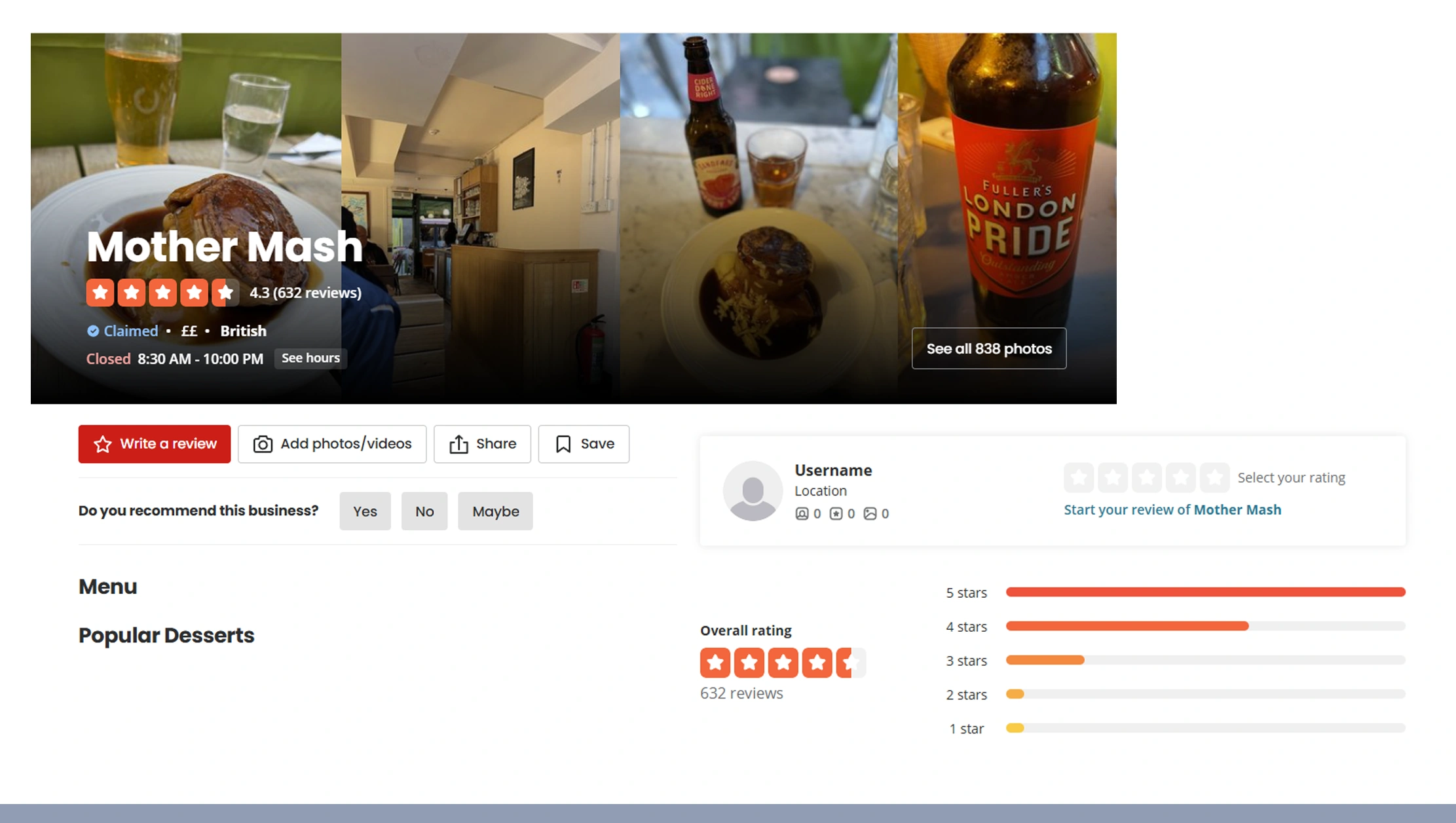
Consider a regional home-services aggregator using our platform: by ingesting Yelp listings for plumbing and HVAC providers across Texas, they identified providers with ≥300 reviews, rating drift < -0.1 stars in past 6 months and review growth> 20%. These surfaced as high-risk businesses needing support. Meanwhile, they spotted clusters of providers emerging in fast-growing suburbs where review volume was rising +35% year-over-year—leading to targeted partnerships and exclusive lead deals. In another instance, a restaurant marketing firm used our Yelp data scraping for local services market insights to identify trending brunch spots with surging reviews and keywords like "value menu" and "solo dining" in reviews after 2022. They then pitched social media campaigns and saw conversion cost drop 18%. Our Real-Time sentiment analysis for local businesses via Yelp flagged a boutique spa whose average rating remained 4.9 but review sentiment shifted—keywords like "wait time" and "pricing" began appearing. The business intervened and avoided a larger dip in rating. These examples demonstrate how structured review data, rating trends and sentiment shifts gleaned via a Local Services Data Scraper and Business Data Extraction API translate into actionable intelligence—enhancing lead generation, operational monitoring and strategic growth.
Future Outlook & Trends
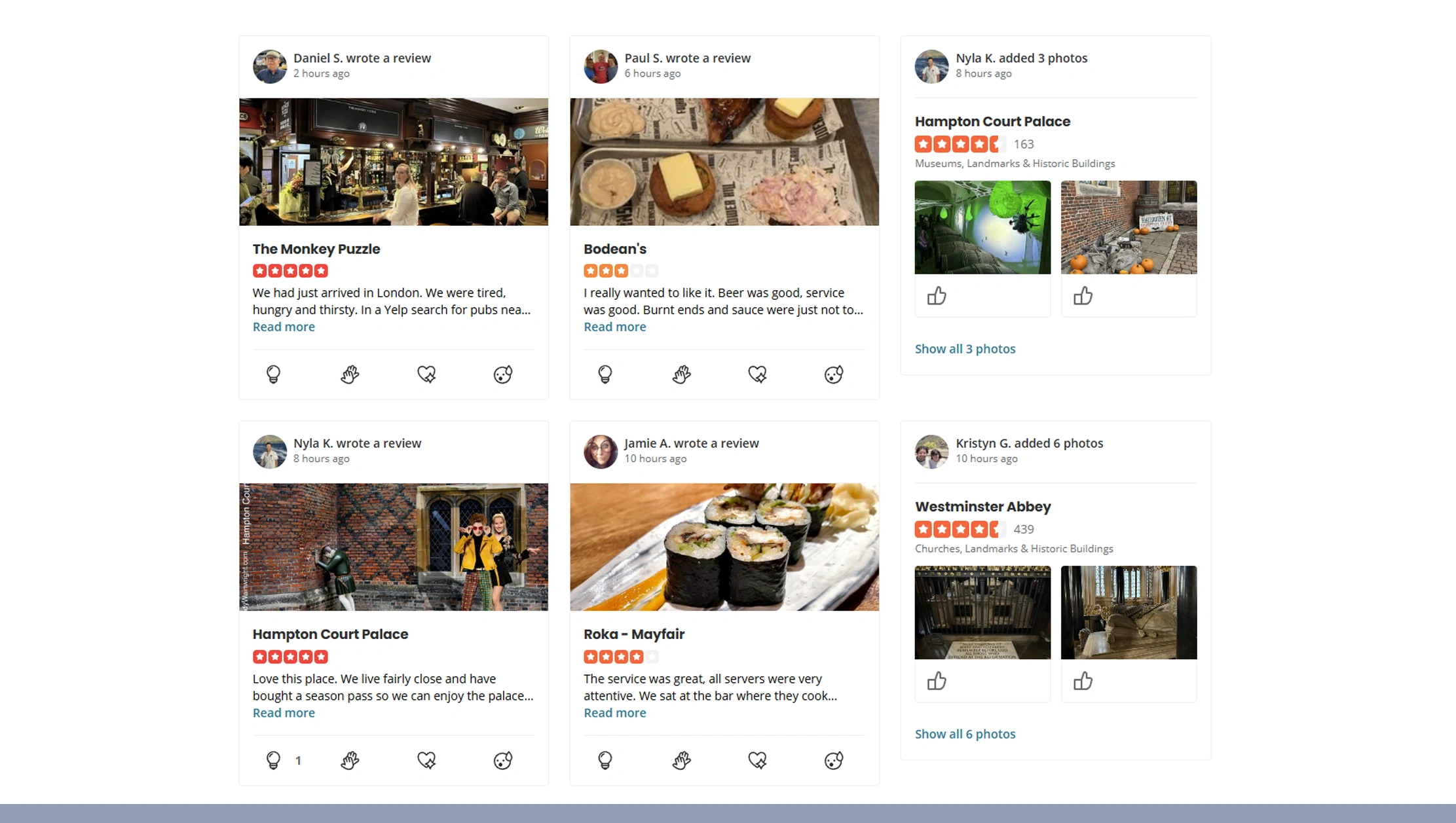
Looking ahead into 2025 and beyond, the review ecosystem is evolving. Yelp's 2025 trend forecast highlights a big jump in searches for immersive dining and unique service experiences—searches for "unique dining experiences" up 509% early 2025. For local services, voice search, mobile bookings, micro-services and rapid reviews will dominate. As businesses commoditize more, new differentiators will be customer experience and value perception, captured via review language. Our platform's Yelp data scraping for local services market insights will be increasingly vital as consumer behavior shifts rapidly. Review text will integrate more emojis, short videos and image-based feedback—so sentiment analysis must evolve accordingly. Meanwhile, businesses offering "good value" or "quick service" will continue to outperform luxury equivalents—just as Yelp data shows budget-conscious dining behavior gaining steam. For investors and aggregators, early-detection of rising clusters (via review spikes, rating drift, sentiment change) will be the key to gaining market share ahead of competition. Real Data API is already adapting its web scraping services to capture multimedia reviews and rank-change events in near real-time. By leveraging our architecture and insights, clients will be able to map service-market growth, adjust lead-gen strategy, and monitor competitor sentiment long before headlines catch up.
Why Choose Real Data API?
Selecting Real Data API means opting for a partner that transforms review noise into strategic intelligence. Our solution combines enterprise-grade web scraping services, Local Services Data Scraper infrastructure, and Business Data Extraction API endpoints—all tailored for capturing and analysing Yelp data at scale. With integration into your BI stack, you gain access to real-time sentiment metrics, review-growth dashboards, rating-drift alerts and geo-analytics. Unlike generic crawlers, our platform is built specifically for extracting ratings, reviews and service data from Yelp, combined with layered sentiment analysis and lead-generation filters. Whether you're tracking restaurants, wellness providers, home services or personal care, our Yelp API integration for local market intelligence ensures you're ahead of emerging trends. You get actionable insights, not just raw data: we assist in translating review patterns into outreach lists, partner opportunities or market-entry signals. Data latency is minimised and compliance is built-in. If you're serious about tracking local-services market shifts, Real Data API is your strategic edge.
Conclusion
In an era where customer voice travels fast and competition is real, unlocking the value of review platforms is no longer optional. Our ability to perform Yelp data scraping for local services market insights means you don't just observe trends—you anticipate them. By extracting ratings, reviews and service data from Yelp, and applying real-time sentiment analysis for local businesses via Yelp, you access a forward-looking market intelligence engine. Whether you're building lead-generation pipelines, monitoring service-provider performance, or mapping regional opportunity, Real Data API's suite of crawling, API access and analytics tools delivers. The data tells stories: rising review volume signals territory expansion, rating decline warns of a reputational slide, sentiment shift hints at evolving consumer expectation. Don't wait until competitors catch the wave—ride it now. Visit Real Data API, schedule a demo and see how our Business Data Extraction API and Local Services Data Scraper can revolutionise your approach. Act now. Your next lead, growth market or trend-spotting insight could be hidden in those reviews.













